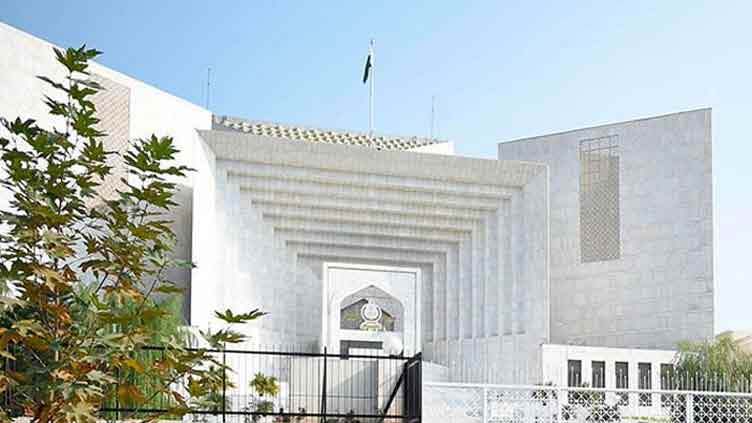ISLAMABAD: The Supreme Court suspended the Islamabad High Court’s (IHC) orders in the audio leaks case related to Bushra Bibi, wife of former premier Imran Khan, and Najam Saqib, the son of former chief justice of Pakistan Saqib Nisar.
During a hearing today, conducted by a two-member bench comprising Justice Aminuddin Khan and Justice Naeem Akhtar Afghan, the top court restrained the IHC from taking any further action in the audio leaks case and declared that the orders it issued on May 29 and June 25 were beyond its ambit.
On May 29, IHC’s Justice Babar Sattar had barred telecom companies from recording phone calls and data for surveillance purposes.
The court had issued the direction: “Till the next date of hearing the intelligence agencies, including, inter alia, the ISI and IB, and police authorities will not surveil any citizens, except in accordance with requirements of the Fair Trial Act and warrants duly issued by a judge of the high court, and neither PTA nor the telecom companies shall authorise the use of their services or equipment for purposes of any surveillance or interception of phone calls or data.”
The order had virtually handicapped the intelligence and law enforcement agencies (LEAs) in probing crimes and terrorist monitoring as the court stopped cellular companies from sharing citizens’ data with agencies.
On June 25, the IHC had reserved its verdict on the Islamabad police’s request to allow surveillance of suspects.
In a subsequent verdict, the IHC had allowed cellular companies to share with police data related to suspects for investigation in the post-crime scenario, restraining telecom operators from facilitating LEAs with surveillance.
The verdict also noted that telecom companies operating in Pakistan were running a mass surveillance system that “enables interception of data and records of telecom customers” without any regulatory mechanism or legal procedures, on the PTA’s orders.
Justice Sattar had earlier dismissed multiple petitions from different authorities requesting that he recuse himself from the case.“The IHC’s orders of May 29 and June 25 are beyond its authority,” the SC ruled today, adding that the court was “not authorised to take suo moto notices”.


